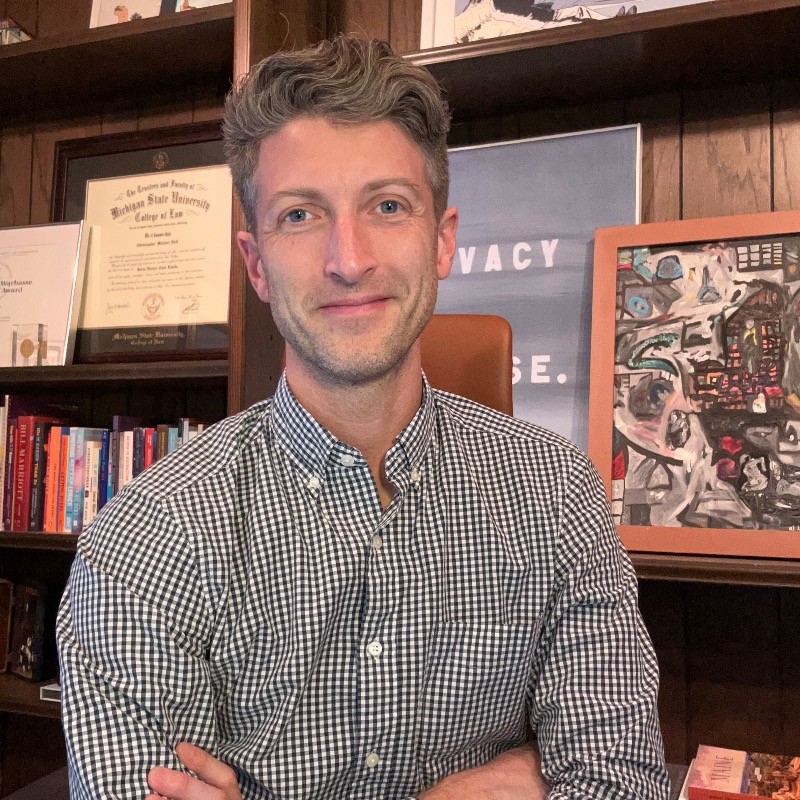The following blog post is part of a series on corporate revolvers who diminished the Biden administration’s effectiveness when it came to helping working people. Click here and here to read our full rebuttals to Matt Yglesias’ error-filled celebrations of the revolving door (which he published in Bloomberg on August 4 and on his Substack on August 12). Long story short: Joe Biden appointees with extensive ties to big business did real damage to his agenda; Democratic presidential nominee Kamala Harris should not make the same mistake.
Former Deputy Assistant Secretary for Services Christopher Hoff joined the Commerce Department’s International Trade Administration in 2021. He was actually returning to Commerce after working for a pair of BigLaw firms representing Big Tech, including Squire Parron Boggs, which lobbied on behalf of Amazon during his tenure.
Hoff led negotiations “on a third try at a transatlantic privacy agreement, the EU-U.S. Trans-Atlantic Data Privacy Framework (TADPF),” former RDP research intern Mekedas Belayneh wrote in June of 2022. “At an International Association of Privacy Professionals conference last October, Hoff parroted Big Tech’s trade goals of lax privacy laws and data localization bans. TADPF’s details are still being hashed out, but there is no indication that it will prioritize consumer privacy. And Hoff is pushing the adoption of the United States’ Cross-Border Privacy Rules (CBPR) system worldwide, which predictably relies on industry to self-regulate data privacy through third-party verifications.”
After promoting Big Tech’s favored policies while leading negotiations for IPEF, TTC, and TADPF, Hoff announced in June 2022 that he was returning to work at Microsoft as general counsel for privacy and regulation. As Mekedas noted, Microsoft “invaded worker privacy by expanding surveillance tools for managers tracking productivity on Office 360 during the height of the pandemic.”
This is the “other side” of the revolving door that Yglesias seems uninterested in. After gaining loads of insider knowledge, many erstwhile regulators like Hoff are willing to sell that knowledge to the very private sector entities they had previously been tasked with overseeing. And now Yglesias wants Harris to invite people like Hoff back into the White House, where they can try to shape rulemaking in ways that benefit their former (and probably future!) corporate employers and clients. If Harris is serious about curbing Big Tech’s corrosive powers, she would be wise to look beyond the upper echelons of Silicon Valley when staffing her administration.

